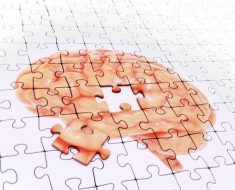Millions of individuals obtain insufficient sleep on a daily basis, which can lead to impaired performance and other adverse physiological outcomes. To what extent these impairments are caused by the short sleep duration or corresponding extended wakefulness was unknown. A team of researchers from BWH have isolated the impacts of short sleep and extended wakefulness on vigilant performance decline and their results are published in PNAS.
“If somebody is routinely awake for more than 18 hours daily, then they are also routinely sleeping for less than six hours daily.
Therefore, it was unknown whether any decline in vigilance or other functions was due to the extended wakefulness or restricted sleep,” said senior author Elizabeth B. Klerman, MD, Ph.D., from the Division of Sleep and Circadian Disorders, Department of Medicine at BWH. “We found that chronic short sleep duration, even without extended wakefulness, resulted in vigilant performance impairments.”
By placing nine healthy participants on a 20-hour “day” during a 32-day inpatient protocol, researchers were able to separate the impact of chronic short sleep from any extended wakefulness. The participants were restricted to 4.67 hours of sleep and 15.33 hours of wakefulness for each 20-hour “day”; this corresponds to approximately 5.5 hours of sleep on a 24-hour day. Eight healthy controls were allowed to sleep 6.67 hours and have 13.33 hours of wakefulness per 20-hour “day”, the equivalent of sleeping 8 hours in a 24-hour day. As 15.33 hours of wakefulness is not considered extended wakefulness, but 4.67 hours of sleep is considered short sleep, any performance impairments were considered due to the short sleep itself.
The researchers found that participants with restricted sleep had a fivefold increase in attention lapses and doubled neurobehavioral reaction time compared to controls, yet there was no relationship between an individual’s self-reported alertness or sleepiness and their vigilant performance. This means that even though individuals were impaired as a result of chronic sleep restriction, they did not notice these impairments. Further, participants on the restricted sleep schedule worsened in these cognitive tasks over the 32-day protocol, suggesting that people are not able to adapt to chronically restricted sleep.
Source: Read Full Article





